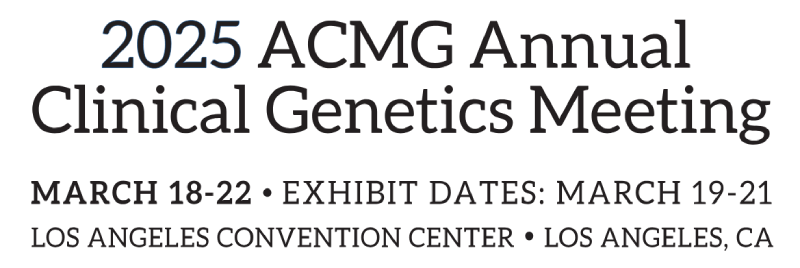Perspectives on Off-Label Use of Therapeutics in Rare Diseases
-
Accredited:
- Accredited
-
Primary Categories:
-
Secondary Categories:
Despite the success of the 1983 Orphan Drug Act (ODA)—which facilitates fast-track FDA approval, marketing protection, tax incentives, and funding for rare disease research—FDA-approved therapies remain unavailable for over 95% of rare diseases. As a result, patients with rare genetic disorders often rely on off-label prescriptions, a prevalent practice in pediatrics. Examples include benzoate and dextromethorphan for glycine encephalopathy, albuterol for Pompe disease, and empagliflozin (a sodium-glucose co-transporter-2 inhibitor) for glycogen storage disease type 1b. However, insurance coverage for off-label prescriptions varies widely. While some insurers may approve coverage based on published evidence or compendia, others may deny reimbursement—even when the usage aligns with clinical guidelines.
Additionally, some promising therapies with demonstrated efficacy in rare diseases remain inaccessible in the U.S. due to the lack of FDA approval. For example, ambroxol—a European Medicines Agency (EMA)-approved mucolytic expectorant—has shown potential as a chaperone therapy for Parkinson’s disease, mucopolysaccharidosis type III (Sanfilippo disease), and Gaucher disease type 3, yet it remains unavailable for prescription in the U.S.
Drug repurposing presents an attractive application of the ODA, offering lower development costs and shorter timelines. However, widespread off-label use in rare diseases—without formal data collection mechanisms such as registries—may undermine efforts to generate the necessary evidence for regulatory approval and ultimately limit long-term access to effective treatments.
This session will begin with an overview of off-label drug use in rare genetic disorders, the regulatory framework of the ODA, and the complexities of drug repurposing. It will then transition into a structured debate, using the World Schools Style format, where experts will present arguments for and against off-label prescribing. Finally, the session will conclude with an interactive “Ask the Experts” discussion, where clinicians, regulatory officials, and the audience will engage in a dynamic conversation on the topic.
Consistent with ACMG’s commitment to Diversity, Equity, and Inclusion (DEI), this session features experts from diverse institutions across the U.S., representing a range of perspectives, backgrounds, and career stages.
Sponsored by the ACMG Therapeutics Committee.
Learning Objectives
- Recognize the status of drug repurposing for rare diseases
- Discuss the limitations encountered when considering off-label drug use for rare diseases
- Differentiate the benefits and risks when considering off-label drug use for rare diseases
- Distinguish the differences between drug repurposing and off-label use
- Outline the needed data when considering a project involving drug repurposing or off-label use
- Summarize the steps towards the process of drug repurposing through regulatory entities
- Apply the skills obtained towards a more efficient drug repurposing process
Agenda
-
 Introduction1:30 PM – 1:35 PM
Introduction1:30 PM – 1:35 PM -
 An Introduction to Off-label Use and Drug repurposing1:35 PM – 1:45 PM
An Introduction to Off-label Use and Drug repurposing1:35 PM – 1:45 PM -
 Perspectives on Off-Label Use - A Clinician's Pro Perspective1:45 PM – 1:55 PM
Perspectives on Off-Label Use - A Clinician's Pro Perspective1:45 PM – 1:55 PM -
 Perspectives on Off-Label Use - A Payor's Pro Perspective1:55 PM – 2:05 PM
Perspectives on Off-Label Use - A Payor's Pro Perspective1:55 PM – 2:05 PM -
 Perspectives on Off-Label Use - A Clinician's Agnostic Perspective2:05 PM – 2:15 PM
Perspectives on Off-Label Use - A Clinician's Agnostic Perspective2:05 PM – 2:15 PM -
 Perspectives on Off-Label Use - An Epidemiology and Legal Framework Perspective2:15 PM – 2:25 PM
Perspectives on Off-Label Use - An Epidemiology and Legal Framework Perspective2:15 PM – 2:25 PM -
 Perspectives on Off-Label Use - Ask the Experts - A POV from Government Regulators2:25 PM – 3:00 PM
Perspectives on Off-Label Use - Ask the Experts - A POV from Government Regulators2:25 PM – 3:00 PM -
 Perspectives on Off-Label Use - Ask the Experts - A POV from Government Regulators2:25 PM – 3:00 PM
Perspectives on Off-Label Use - Ask the Experts - A POV from Government Regulators2:25 PM – 3:00 PM -




)
)
)
)
)
)
)
)
)
)
)
)
)
)
)
)
)
)
)
)